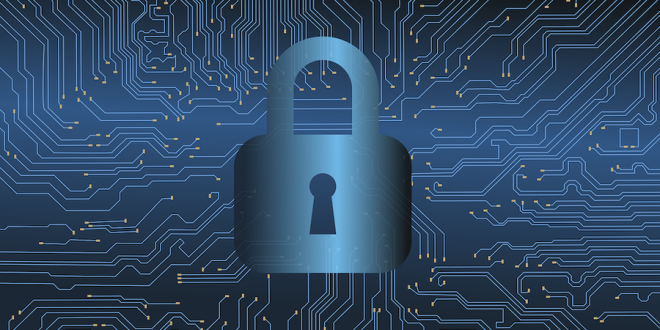In the world of cryptocurrencies, where security is of paramount importance, smart contracts play a significant role in enhancing the safety and integrity of transactions. This article explores the role of smart contracts in ensuring crypto security, highlighting their features, benefits, and best practices for implementation.
Understanding Smart Contracts
Smart contracts are self-executing agreements with predefined rules and conditions encoded into computer programs. They are built on blockchain technology and enable transactions and agreements to be carried out automatically, without the need for intermediaries.
Definition and features of smart contracts
Smart contracts are programmable, digital contracts that execute automatically when predetermined conditions are met. They are decentralized, transparent, and tamper-resistant, offering a high level of security and trust in transactions.
How smart contracts function in the blockchain
Smart contracts operate on blockchain networks, where they are stored and executed. Once deployed, they become part of the blockchain’s immutable ledger, providing transparency and ensuring the integrity of the contract’s execution.
Enhancing Crypto Security with Smart Contracts

Smart contracts contribute to the security of cryptocurrencies in several ways:
- Immutable and transparent execution
Smart contracts’ execution on the blockchain is immutable, meaning that once deployed, they cannot be altered or tampered with. This ensures the integrity and reliability of contract terms, reducing the risk of fraud or manipulation.
- Eliminating intermediaries and single points of failure
By removing the need for intermediaries, smart contracts reduce the reliance on centralized authorities and single points of failure. Transactions are directly executed between parties, enhancing security and reducing the potential for human error or malicious activities.
- Automated and self-executing nature
Smart contracts automatically execute transactions and enforce the predetermined rules and conditions. This eliminates the need for manual intervention, reducing the risk of human error and ensuring consistent and reliable execution.
Smart Contract Security Considerations
While smart contracts offer numerous benefits for crypto security, it is essential to address potential security considerations:
- Code vulnerabilities and audits
Smart contracts are vulnerable to coding errors or vulnerabilities that can be exploited by attackers. Thorough code reviews and security audits are crucial to identify and mitigate potential vulnerabilities before deployment.
- Importance of secure development practices
Adhering to secure development practices is vital when designing and implementing smart contracts. Following principles such as input validation, error handling, and secure coding practices can help minimize the risk of security breaches.
- Ensuring proper access control and permissions
Smart contracts should implement appropriate access control mechanisms to ensure that only authorized parties can interact with the contract. Proper permissions and role-based
access should be defined to prevent unauthorized actions and protect sensitive data.
Use Cases of Smart Contracts in Crypto Security
Smart contracts have various applications in enhancing crypto security. Some notable use cases include:
Multi-signature wallets
Smart contracts can be utilized to create multi-signature wallets, where multiple parties must provide their approval for transactions to be executed. This adds an extra layer of security, as it prevents unauthorized access to funds and reduces the risk of theft.
Decentralized exchanges
Decentralized exchanges (DEXs) powered by smart contracts enable peer-to-peer trading without the need for intermediaries. By eliminating centralized control and custody of funds, DEXs enhance security by reducing the risk of hacking, theft, or manipulation.
Token issuance and management
Smart contracts are commonly used for token issuance and management in Initial Coin Offerings (ICOs) and tokenized ecosystems. By deploying secure and audited smart contracts, issuers can ensure transparency, traceability, and compliance in the token creation and distribution process.
Challenges and Risks of Smart Contracts
While smart contracts offer significant advantages for crypto security, there are challenges and risks to consider:
Complexity and code vulnerabilities
Smart contracts can be complex, and even small errors in the code can lead to significant security vulnerabilities. Thorough testing, auditing, and secure coding practices are essential to mitigate these risks.
Regulatory and legal considerations
The legal and regulatory landscape surrounding smart contracts is still evolving. It is crucial to ensure compliance with applicable laws and regulations, especially when dealing with sensitive data or financial transactions.
The potential for human error
Smart contracts operate based on predefined rules and conditions, which are susceptible to human error during development or deployment. Careful attention to detail, extensive testing, and peer reviews can help minimize the potential for errors.
Best Practices for Secure Smart Contract Implementation
To ensure the security of smart contracts, it is essential to follow best practices during their implementation:
- Code review and auditing: Conduct thorough code reviews and security audits to identify and address vulnerabilities before deployment.
- Testing and simulation: Perform comprehensive testing and simulation to validate the behavior and security of smart contracts under different scenarios.
- Regular updates and bug fixes: Continuously monitor for security vulnerabilities and release updates and bug fixes as necessary to maintain the integrity and security of deployed smart contracts.
- Following industry standards and guidelines: Adhere to established industry standards, frameworks, and guidelines for secure smart contract development, such as those provided by organizations like the OpenZeppelin community or ConsenSys.
The Future of Smart Contracts and Crypto Security
The role of smart contracts in ensuring crypto security will continue to evolve alongside advancements in blockchain technology. As the industry matures, we can expect improved security measures, standardized security protocols, and increased adoption of secure coding practices.
Interoperability and Integration with Security Solutions
Interoperability and integration are crucial aspects of smart contracts in ensuring crypto security. Here are some points to consider:
- Blockchain Interoperability: Smart contracts can operate across different blockchain networks, enabling seamless interaction between diverse ecosystems. This interoperability enhances flexibility and expands security options for crypto users.
- Integration with Security Solutions: Smart contracts can be integrated with other security solutions, such as cryptographic algorithms, encryption techniques, or identity management systems. These integrations add additional layers of protection and strengthen overall crypto security.
Auditing and Security Certification
Performing regular audits and obtaining security certifications for smart contracts can significantly enhance crypto security. Consider the following practices:
- Third-Party Audits: Engage reputable third-party auditing firms to review and assess the security of your smart contracts. Their expertise can help identify vulnerabilities and provide recommendations for improvement.
- Security Certifications: Obtain security certifications from recognized organizations to demonstrate the robustness of your smart contracts. Certifications add credibility and instill confidence in users regarding the security of the deployed contracts.
Regulatory Compliance in Smart Contract Implementation
Complying with relevant regulations is vital when implementing smart contracts in crypto security. Consider the following:
- Know Your Customer (KYC) and Anti-Money Laundering (AML) Compliance: Implement KYC and AML procedures to ensure compliance with regulations and prevent illicit activities in crypto transactions facilitated by smart contracts.
- Data Privacy and Protection: Incorporate privacy measures to safeguard personal information and adhere to data protection regulations, such as the General Data Protection Regulation (GDPR).
Immutable Record-Keeping and Auditing
Smart contracts provide an immutable record-keeping mechanism that contributes to crypto security. Consider the following aspects:
- Transaction Transparency: All transactions executed through smart contracts are recorded on the blockchain, ensuring transparency and accountability. This transparency reduces the risk of fraud or tampering.
- Auditing Capabilities: Smart contracts’ transparent nature facilitates auditing processes, enabling users to verify transaction history and detect any suspicious activities or anomalies.
Community Governance and Consensus Mechanisms
Decentralized governance and consensus mechanisms play a role in ensuring the security of smart contracts. Consider the following points:
- Community Governance: Smart contracts deployed on blockchain networks often involve community governance models where decisions regarding contract updates and security measures are collectively made by stakeholders.
- Consensus Mechanisms: Consensus mechanisms, such as Proof-of-Stake (PoS) or Proof-of-Authority (PoA), enhance the security of smart contracts by involving network participants in the validation and execution of transactions.
Education and User Awareness
Educating users and promoting awareness about smart contract security is essential for maintaining a secure crypto environment. Consider the following:
- Security Training and Workshops: Provide educational resources, training sessions, and workshops to educate users about smart contract security best practices, common vulnerabilities, and mitigation strategies.
- User-Friendly Documentation: Develop user-friendly documentation and guidelines that explain how to interact with smart contracts securely. Empower users with the knowledge they need to make informed decisions and protect their assets.
Insurance and Risk Mitigation
Insurance and risk mitigation solutions can provide an additional layer of protection for smart contracts and crypto assets. Consider the following:
- Smart Contract Insurance: Insurance providers are emerging in the crypto space to offer coverage for smart contract vulnerabilities and potential financial losses resulting from security breaches or coding errors.
- Smart Contract Audits: Conducting thorough audits by specialized firms helps identify vulnerabilities and mitigate risks before deploying smart contracts. This, in turn, can assist in obtaining insurance coverage and reducing premiums.
Collaboration and Information Sharing
Collaboration and sharing of information among industry participants can significantly contribute to crypto security. Consider the following practices:
- Security Communities and Forums: Participate in security-focused communities and forums where professionals and developers share knowledge, discuss best practices, and collaborate on improving smart contract security.
- Bug Bounty Programs: Implement bug bounty programs to incentivize security researchers to discover and responsibly disclose vulnerabilities in smart contracts. This encourages a proactive approach to security and facilitates timely patching of identified issues.
Disaster Recovery and Incident Response Planning
Preparing for potential security incidents and having a robust disaster recovery plan is essential for smart contract security. Consider the following:
- Backup and Redundancy: Regularly backup smart contracts and associated data to ensure recovery in the event of a security incident or system failure. Maintain redundancy in multiple secure locations.
- Incident Response Team: Establish an incident response team and define clear procedures for handling security incidents related to smart contracts. This ensures swift and effective responses to mitigate any potential damage.
Continuous Improvement and Adaptation
Smart contract security is an evolving field, and continuous improvement and adaptation are key. Consider the following practices:
- Security Testing and Upgrades: Regularly conduct security testing to identify and address vulnerabilities. Stay updated with the latest security practices and upgrade smart contracts and underlying technologies as needed.
- Industry Collaboration: Collaborate with other organizations and industry experts to stay informed about emerging threats, share experiences, and collectively work towards improving smart contract security standards.
Conclusion
Smart contracts play a vital role in ensuring crypto security by providing immutable, transparent, and automated execution of transactions. By leveraging the benefits of smart contracts and following best practices for their implementation, individuals and organizations can enhance the security and integrity of their crypto assets. However, it is essential to remain vigilant, address potential risks and challenges, and adapt to evolving security practices to stay ahead in the dynamic world of cryptocurrencies.

I’m a highly experienced and successful crypto author who has helped thousands of people to invest in cryptocurrencies. I have a good knowledge and experience in the industry, and I have always been up-to-date with the latest developments. I’m a highly respected member of the crypto community, so if you are looking for someone to help you navigate the world of cryptocurrencies, then you can always contact me.
 Crypto Print
Crypto Print

